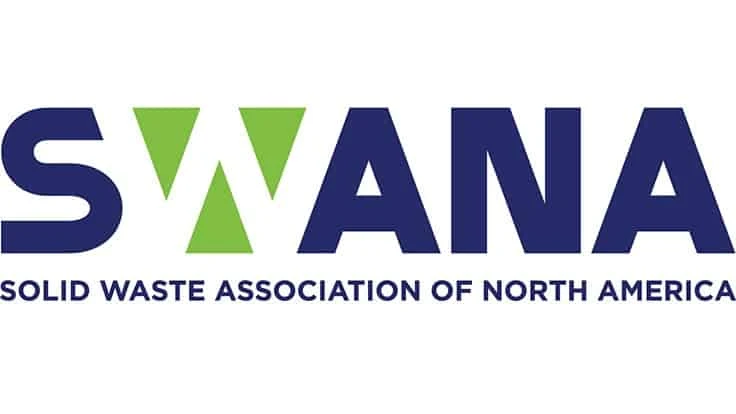
Photo courtesy SWANA
The Solid Waste Association of North America (SWANA) recently released a report analyzing the impact of COVID-19 on solid waste collection services and the industry’s current labor shortages. The two-page paper outlines the causes of the shortage and several short-term and long-term solutions for the problem.
“The COVID-19 pandemic has made it even more difficult for some companies and agencies to attract and retain collection workers, which is causing service disruptions,” says David Biderman, SWANA executive director & CEO. “Solid waste is not the only industry facing this challenge, and this paper provides some useful suggestions for how local governments and companies should address the situation.”
SWANA believes that the pandemic has had substantial impacts on solid waste collection and has made it difficult for some companies and agencies to maintain service levels due to:
- increased residential waste and recyclables tonnages;
- COVID illnesses, school closures, and the lack of affordable child-care options that require employees to stay at home; and
- extended unemployment benefits and stimulus checks that provide disincentives for workers to return to the workforce.
Some short-term solutions that service providers and communities can collaboratively develop include:
- temporarily reducing the collection service frequency for recycling and yard waste collection;
- temporarily suspending the curbside collection of yard waste and/or bulky waste; and
- expanding the use of temporary workers and conducting aggressive outreach to potential employees, including via social media.
SWANA also suggests some long-term solutions to ensure recruitment numbers remain consistent. They include:
- solid waste collection employers should consider increasing compensation for driver and helper positions to make them more attractive to potential applicants;
- solid waste collection employers should promote industry jobs as providing recession-resistant, long-term career opportunities;
- communities that contract for waste and recycling collection services may have to renegotiate their contracts to reflect wage increases associated with driver and helper positions or reductions in service levels needed to minimize budget impacts;
- collection fee increases and/or increases to public sector budgets may be needed to cover these additional costs; and
- agencies and haulers should consider utilizing automated collection trucks where feasible to reduce workforce helper demands and improve worker safety.
Latest from Waste Today
- C&D World session preview: Optimizing Plant Operations with best practices for efficiency and success
- Hyva announces new rear loader
- Nantucket, Massachusetts, renews contract with Waste Options
- Commentary: Battery fires threaten waste management workforce and clean energy transition
- Commentary: The rise of scam listings on waste and recycling platforms calls for vigilance
- New Hampshire lawmakers introduce leachate management bill
- Heritage Environmental Services appoints chief commercial officer
- Ripple Glass launches commercial glass collection program in Atlanta





